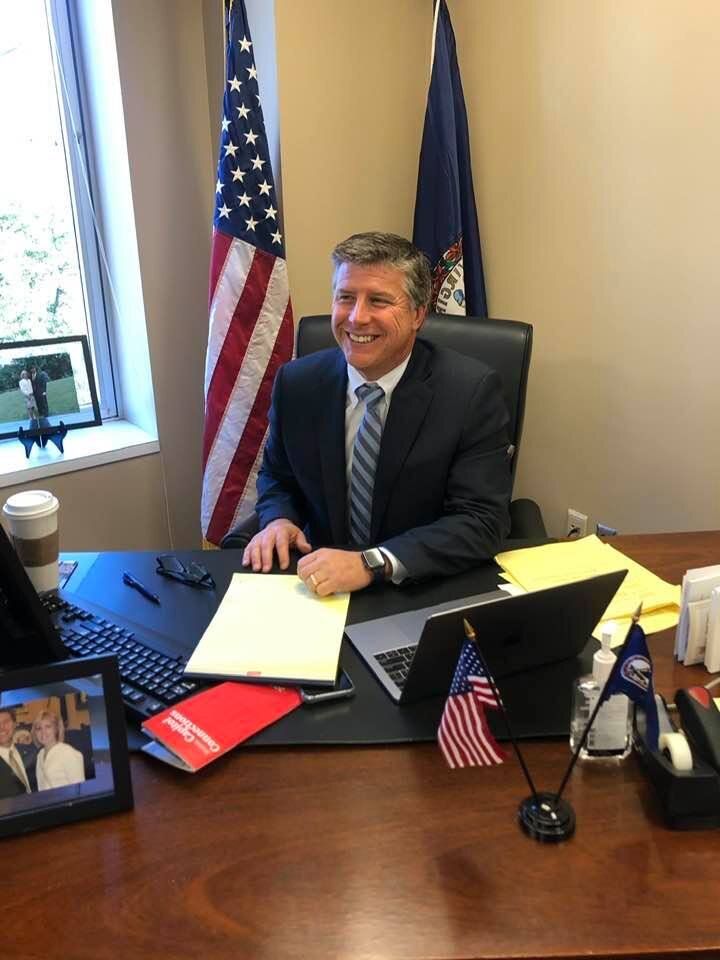Legislators have submitted 1,995 bills for their colleagues to consider during this year’s General Assembly session. That’s a lot of legislation to consider over the course of 46 days.
Only a handful of the bills and resolutions considered by the General Assembly generate attention from the news media. And, those issues that are the most contentious, highlighting the differences between the parties or regions garner more attention than any other.
One such contentious issue was considered by legislators this week, the minimum wage.
Virginia and twenty other states have the same minimum wage as mandated by the federal government. Of the five states and the District of Columbia that border Virginia, three observe the federal minimum wage and three have higher rates. The District of Columbia has the nation’s highest minimum wage at $13.25 per hour.
The Senate debated this week whether to raise Virginia’s minimum wage to $15 per hour, which would make ours the nation’s highest state minimum wage. This was a debate that broke entirely along party lines, with all Republicans opposing the dramatic increase and Democrats supporting it.
The opposition to doubling the minimum wage can be summed up in a single word: jobs. From the Congressional Budget Office to academia to independent think tanks, studies consistently show that minimum wage increases result in a loss of jobs. One study indicated that an increase to $12 per hour – less than what was proposed – would cost us over 24,000 jobs.
According to the U.S. Bureau of Labor Statistics, less than 3% of the hourly workforce earns the minimum wage. Since such a small percentage are earning the minimum, why would so many jobs be lost? Those being paid the minimum wage are disproportionately young, often working only part-time, and are rarely breadwinners. For employers, these jobs are the easiest to eliminate, endangering extra income and opportunity for those currently earning the minimum wage.
While there are exceptions, those who do earn the minimum wage do not earn it for very long. It is usually a starter wage. Wages are rising across the board for the first time in decades and unemployment is at record lows. Dramatically changing what amounts to entry-level compensation endangers our economic vitality.
A wide coalition of groups representing small businesses, chambers of commerce, the hospitality industry, manufacturers, and agribusinesses all weighed in on the issue, uniformly opposing the increase.
I want Virginia’s economy to expand and the number of jobs to grow. As a result, I voted against the $15 minimum wage.
I was honored to give remarks at the Capitol Foundation Gala this week in my role as President Pro Tem of the Virginia Senate. We are fortunate to have the Virginia Capitol Foundation as a partner. This small nonprofit organization raises money for projects that fall outside the state operating budget. Highlights include:
• the Thomas Jefferson statue
• the visitor orientation film, Keepers of the Flame,
• the Virginia Women’s Monument: Voices from the Garden,
• restoration of Capitol Square’s 1818 Cast Iron Fence,
• the USS Virginia Silver Service,
• and an updated visitor experience to the Capitol, Capitol Square, and Executive Mansion.
Several of my bills advanced through the legislative process this week. I have been working on bills to improve health care, assist in energy related rate issues, and transportation concerns. I will have more about these bills in the coming weeks.
Most years, more people visit the General Assembly on the Martin Luther King Jr. holiday than any other day during session. This year, visitors braved windy 20-degree weather to see their elected officials working for them. Visitors came by our office throughout the week, including many members of the Virginia Citizens Defense League, representatives from Ortho Virginia, YMCA members, Virginia Rural Water Association staff and Horizon Behavioral Health representatives and several individual constituents.
We’re already one-third of the way through the 2019 General Assembly session. There’s a lot more to come. If you want to contact us about an issue or legislation being considered, please send us an email at District23@senate.virginia.gov or call us at (804) 698-7523.
